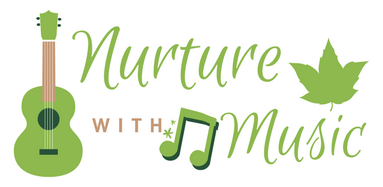Nurture with Music offers Music Therapy Programs for All Ages, but specifically for those in their early years 9 months – 5 years old as well as the elderly 55 years – 65 years.
There are 3 types of Music Therapy Programs that depends on the specific situation for the Client, whether they require one-on-one attention or to be in a group session, whether it is part of the LifeSense Strategic Coaching session for getting in touch with one’s true authentic self, emotions and realizing one’s creative potential, or as a way to prevent Alzheimer in one’s golden years.
-
Music Therapy for 9 Months – 5 Years Old ($50 for 50 minute one-on-one class, or $20 for 1 hour group class)
-
Music Therapy for 25 – 55 Years Old as part of LifeSense Strategic Coaching Sessions ($60 for 1 hour session)
-
Music Therapy for 55+ Years ($50 for 50 minute one-on-one class, or $20 for 1 hour group class)
“Fact: Music is one of the only activities that activates, stimulates and uses the entire brain”

Music uses both the left and right hemispheres of the brain, implying that music is amazing brain “food” preventing brain degradation in the form of dementia and Alzheimer’s in your later years. Similar to learning a second language – this too can reduce the chances of developing Alzheimer’s in your senior years.
The creative right side of the brain resonates with the melody, harmony, and pitch, while the left side analyzes changes in frequency, rhythm, and intensity.
Nurture with Music offers Music Therapy Programs for All Ages but specifically for toddlers and the elderly over 55+ as prevention from Alzheimer’s or dementia.
We play music and then the music plays us, bringing our emotions to the surface.
Listening to music can lead to improved focus, memory and attention, language skills, and physical coordination.
Playing music is even better for mental development than passively listening to music. Kids who join a band or learn to play an instrument develop better memories than kids with no musical training.
Listening to music while studying improves memory recall in all age groups. Instrumental music works best because the words in songs can compete with information you’re trying to remember.
The Mozart Effect
Music has been universally used to help people remember language and stories significant to that culture. A remnant of that is teaching our children nursery rhymes.
It appears we are genetically programmed to respond to music. Babies in the womb react differently to music they like and don’t like. Since music is a set of vibrations, rhythms, tones, pitches and sounds – listening to music can move people on a cellular level – whether it is emotionally by memory recall, mentally by elevating one’s mood or physically by making one dance to the beat of the music.
Young brains that are exposed to music build more neural pathways, possibly leading to higher intelligence. One popular study found listening to Mozart led to higher scores on intelligence tests.
Findings like this led to a theory called the “Mozart effect”. Playing Mozart to babies before and after birth was believed to make them smarter. While this concept has fallen out of favor with the scientific community, many people are still convinced of its worth.
Nurture with Music offers Music Therapy Programs for All Ages but specifically for toddlers and the elderly over 55+ as prevention from Alzheimer’s or dementia.
Music as Brain Therapy
There is an entire field of music therapy. Stroke victims who listen to music have faster recoveries and improved verbal memory and attention spans compared to those not exposed to regular music. Songs can help create new speech pathways in the brain that circumvent damaged regions.
Giving seniors with Alzheimer’s or dementia an iPod can greatly improve their lives. Music helps to fill their days, brings many of them out of their shells, and rekindles memories.
Dancing is associated with a significant reduction in the risk of dementia. It’s not sure whether it’s the physical exercise, the mental challenge of learning new moves, or the social aspect that helps, but it could be a synergistic effect of all three.

The power of music has the ability to heal people that are in distress, relieve pain to those suffering from a physical ailment and much more.
Music’s healing power over the body has also attracted attention from scientists who aim to test this ancient wisdom. A growing body of research supports the claim that music can alleviate physical pain. Studies have shown music to be an effective pain reliever, both on its own and in conjunction with other types of therapy.
Nurture with Music offers Music Therapy Programs for All Ages but specifically for toddlers and the elderly over 55+ as prevention from Alzheimer’s or dementia.

